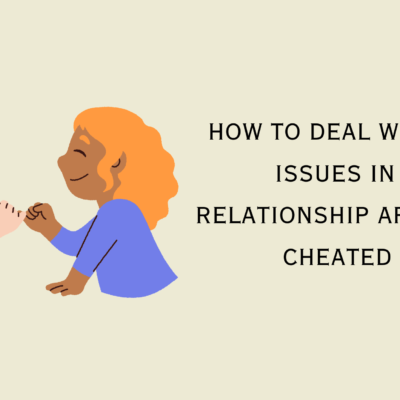How to Cope with Regrets in Life?
How to Cope with Regrets in Life: Regret is a natural part of life. We all make mistakes, miss opportunities, or wish we had done things differently. Whether it’s a career decision, a lost relationship, or a past failure, regrets can weigh heavily on our hearts and minds. However, dwelling on them doesn’t change the past—it only prevents us from fully embracing the present and future.
Coping with regret requires self-reflection, acceptance, and a shift in perspective. This article explores practical ways to deal with regrets and move forward toward a more fulfilling life.
1. Understand the Nature of Regret
Regret is an emotional response to past decisions or actions we believe could have turned out better. It often stems from:
- Missed opportunities (e.g., not pursuing a dream job)
- Mistakes made in relationships (e.g., hurting a loved one)
- Fear-based decisions (e.g., not taking a risk)
- Comparing ourselves to others (e.g., feeling left behind in life)
Understanding that regret is common and that everyone experiences it at some point can help you realize you’re not alone. Instead of letting it define you, use it as an opportunity for growth.
2. Accept That the Past Cannot Be Changed
One of the biggest traps of regret is wishing you could go back and do things differently. The reality is, no amount of thinking or overanalyzing will change the past. The only thing you have control over is how you respond to it.
To accept the past:
- Remind yourself that every decision was made with the knowledge and emotions you had at the time.
- Recognize that mistakes and failures are part of being human.
- Stop replaying the “what if” scenarios in your head.
Acceptance doesn’t mean you approve of past mistakes, but it frees you from the emotional burden of constantly reliving them.
3. Learn from Your Regrets
Regret can be a powerful teacher. Instead of seeing it as a punishment, consider it a lesson that can help you make better choices in the future.
Ask yourself:
- What did this experience teach me about myself?
- How can I avoid making the same mistake again?
- What can I do differently moving forward?
By shifting your perspective, regret becomes a stepping stone for personal growth rather than a roadblock.
4. Practice Self-Compassion
It’s easy to be harsh on yourself when dealing with regret. You might constantly replay your mistakes or feel unworthy of happiness. However, self-compassion is essential for healing.
Ways to be kinder to yourself:
- Speak to yourself the way you would comfort a friend in the same situation.
- Recognize that perfection is impossible—everyone makes mistakes.
- Allow yourself to grieve over past regrets but then choose to move forward.
Forgiving yourself is just as important as forgiving others. Holding onto self-blame only prolongs the pain.
5. Focus on the Present
Regret keeps us stuck in the past, making it difficult to enjoy the present moment. However, the only time we truly have control over is now.
To stay present:
- Practice mindfulness by paying attention to your thoughts and emotions without judgment.
- Engage in activities that bring you joy and fulfillment.
- Create new positive memories to replace the weight of regretful ones.
The present is a gift—don’t waste it by constantly looking back.
6. Take Action Where Possible
Some regrets can be resolved by taking action. If you regret hurting someone, apologize. If you regret not pursuing a goal, start working on it now. If you regret missing an opportunity, look for new ones.
Examples of actionable steps:
- Apologize – If your regret involves a broken relationship, reaching out with a sincere apology might bring closure.
- Pursue Your Dreams – If you regret not following your passion, start small but take a step toward it today.
- Make Amends – If possible, correct past mistakes by making positive changes in your behavior or decisions.
Even if you can’t completely undo the past, taking action can provide relief and a sense of control.
7. Change Your Perspective on “Failure”
Many regrets stem from fearing failure. However, failure is not the end—it’s a lesson. Some of the most successful people in history failed multiple times before achieving greatness.
Instead of seeing failure as a sign of incompetence, reframe it as:
- A learning experience
- A stepping stone toward improvement
- A necessary part of growth
When you change your mindset, regret over past failures transforms into motivation for future success.
8. Seek Support from Others
You don’t have to deal with regret alone. Talking to trusted friends, family, or a therapist can provide comfort and perspective.
Ways others can help:
- Offering an outside viewpoint on the situation
- Reassuring you that mistakes don’t define you
- Providing emotional support and encouragement
Sometimes, expressing your regrets out loud helps in releasing their emotional hold over you.
9. Set Goals for the Future
One of the best ways to counter regret is to focus on what you can do instead of what you could have done. Setting new goals helps shift your attention toward creating a better future.
Make your goals:
- Specific – Clearly define what you want to achieve.
- Realistic – Set achievable steps to move forward.
- Actionable – Start with small actions to build momentum.
A purposeful life leaves less room for regret.
10. Let Go and Move Forward
At some point, you have to decide to let go. Holding onto regret keeps you stuck in an emotional cycle that prevents growth and happiness.
Letting go involves:
- Accepting that the past is unchangeable
- Choosing to focus on the lessons rather than the pain
- Committing to living fully in the present
It may take time, but gradually, you’ll realize that life is too short to carry the weight of regret forever.
Final Thoughts
Regret is a natural part of life, but it doesn’t have to control you. By accepting the past, learning from your experiences, practicing self-compassion, and focusing on the present, you can free yourself from its grip.
Mistakes and missed opportunities are not the end of the road—they are lessons that guide you toward a better future. The key is to shift your perspective and take positive steps forward.
Remember: The best way to cope with regret is to live in a way that minimizes future regrets. Focus on making meaningful choices today, so you don’t look back with “what ifs” later.






